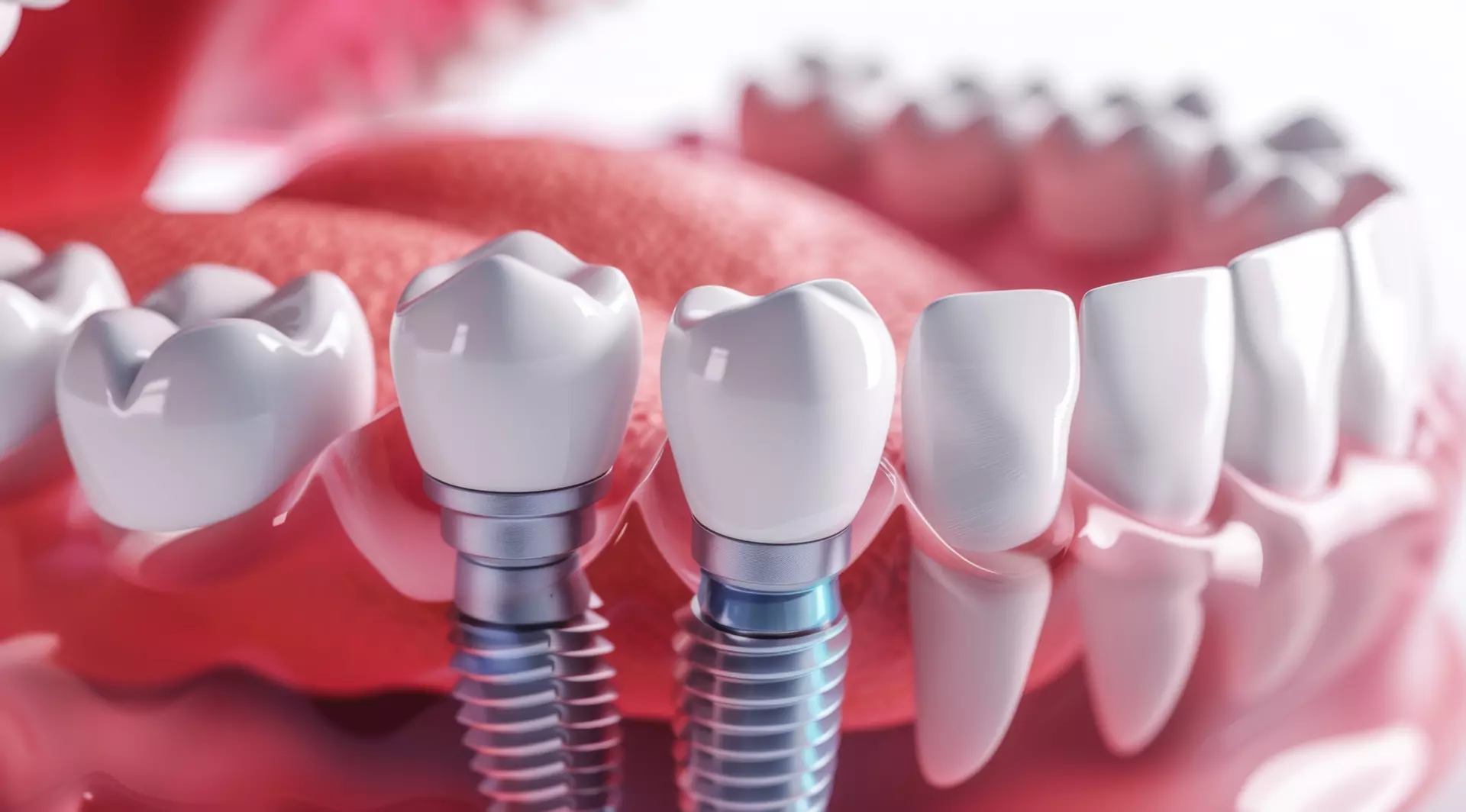
What Are Dental Implants?
Replacing unsalvageable teeth is vital to the overall wellness and look of your smile. To help Peoria, AZ men and women effectively replace extracted or lost teeth, Reflections Dental is proud to offer lifelike dental implants. A fixed implant uses a sturdy screw that acts as an artificial tooth root, while a custom dental crown, bridge, or denture restores the visible portion of the missing tooth or teeth. Reflections Dental collaborates with a periodontal specialist who is an expert in the surgical placement of dental implants and has advanced training in gum and bone health. If you have missing teeth or need a tooth extraction, schedule an evaluation with Dr. Donald Hildebrandt to discuss your dental implant options.
Request an AppointmentWhat Is the Dental Implant Treatment Process?
The dental implant process involves surgically placing the implant and securing a realistic replacement, such as full-arch dentures, crowns, or bridges. Local anesthesia is used to numb the area, and sedation dentistry may be offered to help you feel comfortable during surgery. The titanium post is carefully positioned within the jawbone and allowed to fuse with the bone through a process called osseointegration, which typically takes several months. Once healed, Dr. Hildebrandt will attach a custom implant denture, crown, or full-arch restoration and check the alignment of your bite.
What Is Recovery Following Dental Implant Placement Like?
After treatment, patients may experience some swelling, bruising, and discomfort around the implant site. These symptoms can be managed with prescribed or over-the-counter pain medication and ice packs. Once the implant integrates with the jawbone and your restoration is in place, maintaining a strong oral hygiene routine—brushing and flossing—is essential. During regular visits to Reflections Dental, we will carefully clean your implants and monitor the health of your restorations.
What Are the Benefits of Dental Implants?
Dental implants are highly favored at our Peoria, AZ practice because of their numerous benefits. Implants at Reflections Dental:
- Encourage the adaptation of a varied diet
- Fuse with the jawbone to maintain jaw health and structure
- Provide a long-lasting tooth restoration solution
- Boost your self-confidence during conversations and whenever you smile
- Do not require support from neighboring teeth
- Offer improved biting strength and durability of restorations
- Function and look like natural teeth in both appearance and capability

Are You a Candidate for Dental Implants?
Dental implants can replace one or more damaged or missing teeth. You might be a good candidate if you have lost teeth, need extractions, or are facing issues with current replacements. Successful implant placement requires healthy gums, adequate bone density, and a favorable oral environment. Some patients may need preparatory treatments before becoming ideal candidates. However, implants may not be recommended if you are pregnant, use tobacco, or have certain medical conditions. During your consultation, Dr. Hildebrandt will evaluate your situation to determine if dental implants are right for you.
Request an AppointmentDental Implants FAQ
How do dental implants affect surrounding teeth?
Dental implants positively impact surrounding teeth. Unlike traditional bridges that require adjacent teeth to be filed down for support, implants do not affect neighboring teeth, preserving their strength and integrity. Additionally, implants prevent surrounding teeth from shifting into gaps left by missing teeth, helping maintain proper dental alignment and overall oral health.
Can dental implants be used to support dentures?
Yes, dental implants can support dentures, offering a more stable and comfortable alternative to traditional dentures. Implant-supported dentures securely snap onto implants anchored in the jawbone, preventing slipping or movement and improving chewing and speaking. They also help preserve jawbone density by stimulating the bone, providing a more natural feel and function compared to conventional dentures.
How long do dental implants last?
The lifespan of dental implants varies based on factors such as oral hygiene, lifestyle, and overall health. With proper care, implants can last several decades or even a lifetime. Maintaining good oral hygiene—brushing, flossing, and regular professional cleanings—is essential. Avoiding smoking and managing chronic health conditions like diabetes also improves long-term success. Regular dental check-ups help monitor implant health and stability.
How does smoking affect dental implants?
Smoking negatively affects dental implant success by reducing blood flow to the gums and bone, which is critical for healing and osseointegration (the fusion of implant to jawbone). Smokers face higher risks of infection and implant failure. Quitting smoking before and after implant surgery greatly increases the chance of a successful outcome. Dentists strongly recommend quitting smoking to improve oral health and implant longevity.
